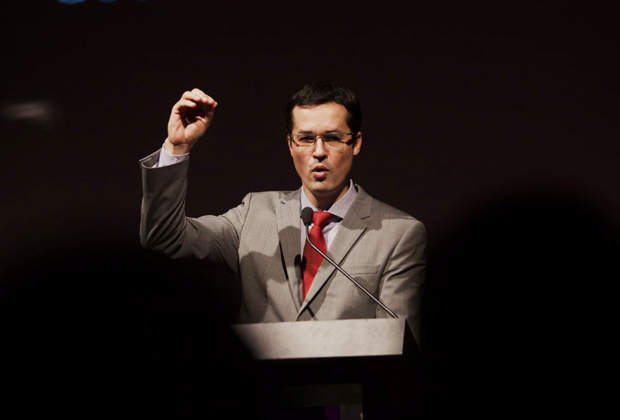Latest Photo Galleries
Brazilian Markets
17h33 Bovespa |
-0,33% | 125.148 |
16h43 Gold |
0,00% | 117 |
17h00 Dollar |
-0,77% | 5,1290 |
16h30 Euro |
+0,49% | 2,65250 |
ADVERTISING
Fate of Operation Car Wash Will Be Decided in 2018, According to Prosecutors
11/28/2017 - 11h41
Advertising
LUCAS VETTORAZZO
FROM RIO DE JANEIRO
Prosecutors involved in Operation Car Wash (Lava Jato) who are based in Rio de Janeiro, Curitiba and São Paulo (the three main states with ongoing investigations) said on Monday (the 27th) that next year will be decisive when it comes to determining the fate of corruption investigations throughout the country. They believe that if the congressmen and executive leaders elected in next year's elections have their way, they will likely try to narrow the scope of corruption investigations.
The prosecutors issued a letter urging the population to elect clean candidates with an anti-corruption platform in next year's elections. However, they did not provide the names of any such candidates.
Prosecutor Deltan Dallagnol denied that there were investigators who were interested in running for office or trying to join the country's political elite. "2018 will be the final battle for [Operation] Lava Jato. Not that it is scheduled to end on a particular day, but its fate will depend on the election results", he said. It was implied that several other corruption schemes still remain to be revealed, although no specifics were provided.
| Marcelo Justo/Folhapress | ||
 |
||
| Prosecutor Deltan Dallagnol |
The prosecutors said that the three main obstacles that Operation Lava Jato faces are Congress, the Executive and "agreements within the Judiciary".
In addition to defending plea-bargain mechanisms, they also raised their concerns regarding the return of discussions aimed at approving so-called "abuse of authority" legislation, which would narrow their investigative capacities. Talks surrounding the penal code reform were also viewed as negative due to potential changes both in terms of plea-bargain regulations and in terms of sentencing, where sentences would only start to take effect following a final ruling.
Translated by THOMAS MATHEWSON



